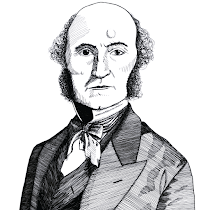A few weeks ago I organized a research
and teaching luncheon for junior faculty, post-docs and graduate students in my
department with two retired faculty (
here and here), and the idea was to share
thoughts about "advice I wish I received at the beginning of my
career".
There was a very interesting discussion
about the isolation of academic work, the pressures of balancing research,
teaching, administration, and life. While I am not (at least yet) at the
retired stage of my career, I shared a few insights based on how things look to
me now after 23+ years into my academic career.
My comments were informed by the fascinating
psychological research done
on the difference between a "growth" vs "fixed"
mindset. As I was reading through this book I made a number of linkages
with a career in higher education. And so my comments at the luncheon
focused on the importance of 3 "epistemic virtues" that I think, at
the start of one's career, it is really important to be aware of and
consciously cultivate to help improve the odds that one develops a
"growth" vs "fixed" mindset in one's research and
teaching.
The 3 epistemic virtues I emphasized
are:
1. Curiosity:
a genuine desire to fill the gap between knowledge and understanding vs having
a closed/indifferent mindset.
2. Humility:
being comfortable to acknowledge your own “gaps” in knowledge and the limits of
one’s expertise vs acting and thinking like an arrogant “know it all”.
3. Intellectual risk-taking: taking on some new challenges that have
uncertain or more difficult payoffs vs only inhabiting the safety of
established research paradigms and professional norms.
Below are a few personal reflections of
how I think these virtues can apply in research and teaching.
In the classroom, an instructor can
motivate students to learn the class material by stoking their curiosity.
There are a diverse range of ideas historical political thinkers have advanced
for diagnosing the societal predicaments that face our societies, and a diverse
range of prescriptions for addressing those problems. What are the merits
and demerits of viewing the political landscape through the lens of Marxism vs
liberalism vs critical race theory vs feminism vs utilitarianism vs
conservatism, etc.? Where did these
different ideas come from? What events or observations inspired thinkers like
Hobbes, Locke, Wollstonecraft, Mill, Marx, Du Bois or MLK, Jr.?
As an instructor if
you demonstrate intellectual curiosity in the classroom students will mimic
this. Curiosity is infectious. In my classes students will often ask me what
my own political convictions and perspectives are because they can not discern
them from the way I teach. I take such
comments as a complement! I tell my
students I am still figuring out my own political convictions and
perspectives.
In my final year as
an undergraduate student I was swayed by anarchism, libertarianism, existentialism and
Marxism all within the span of about 12 months!
I am still growing and exploring the moral and political landscape. I think instructors that approach the
classroom with strong ideological commitments do a disservice to the mission of
higher education. They approach the
classroom from a fixed mindset (e.g. “I, the course instructor, know the truth
about justice, democracy and equality, and my goal is to get you, the student,
to espouse what I espouse”). When the
intellectual journey is instead approached as a joint collaboration (e.g. “We
all have our starting beliefs and experiences, assumptions and intuitions, and
together we will critically assess and explore them and see where that takes
us”) that is genuinely open then real learning occurs. The desire to “virtue signal” that one is “on
the right side of some ideological battle” must not trump the prime directive
of higher education- to help
facilitate and celebrate critical thinking.
Intellectual
humility is another (related) critical mindset for an instructor and
researcher. The opposite of humility is arrogance,
the uncritical presumption that you know all the answers to important
questions, as well as what constitutes the important questions to be answering
in the first place. Arrogance should not
be confused with confidence. Of course
an instructor and researcher should have confidence, at least when they are
teaching and researching something they actually have competence in. But humility is also critical to the
educational mission. Possessing the
ability to distinguish between the topics one can speak to with some confidence,
vs those that one cannot, is a mark of a good instructor and inquisitive intellectual. The mindset that tries to
prove one knows all things, whether it be to their students or “Twitter
followers”, is coming from a motivation of “ego” vs intellectual humility and curiosity.
For one’s research,
I think having intellectual humility can help one step back and re-evaluate the
future trajectory of one’s research. For
example, after my PhD I published a few articles from my thesis, defending the
Rawlsian paradigm of political philosophy by applying it to the issues of a basic
income, free
speech and economic
incentives. But then I began to
critically reflect on the shortcomings of that paradigm. If my primary goal was to simply publish more
of the same stuff I had already published, or to defend the theoretical
tradition I happened to find attractive as a graduate student, I would have
constrained my intellectual growth and probably contributed much less to the
field in terms of original insights.
And finally, the
third and final epistemic virtue I would encourage a young academic to
cultivate is “intellectual risk-taking”.
This virtue occupies the mean between the foolish or careless
academic who says “I will write what I want to write, where
and when I want… the publishing expectations of the discipline
and tenure be dammed!” (good luck getting tenure or even finding a TT job with
such an attitude!) and the conservative approach of trying to hedge bets on
what would yield the safest and most prodigious publication record in the
future.
One might ask why do
any intellectual risk-taking at all? I
think the answer to that question depends on that type of academic you are/want
to be. If you are like me then
intellectual risk-taking is where the most significant intellectual development
and growth occurs, and it is really fun challenging the wisdom of established
research paradigms and trying to forge novel ground in a discipline.
For me, the most
rewarding research I have done has involved intellectual risk-taking of the
following kind:
(1) writing a textbook
as my first published book (vs my dissertation);
(2) publishing a second book
which in some respects represented my anti-dissertation vs dissertation;
(3) publishing papers
and books that criticize the dominant methodology of the discipline;
(4) exploring new
ways (here
and here)
to understand a historical thinker whose central ideas I do not espouse (but I
think are worth seriously engaging with)
(5) spending
15 years writing a book on a neglected topic in the field in the hopes that
a reputable publisher would eventually publish it;
(6) and then, after
(5), agreeing to write another
book on that same topic from a completely new methodological perspective.
(7) devoting 15
years of my research to a topic
that is completely ignored by my discipline, and publishing my articles in
journals outside my field, like science, medicine.
Wrapping this long
post up… the bottom line in terms of advice I wish when I started my
career: academics ought to reflect,
often and deeply and critically, on the question of the type of scholar
and instructor they aspire to be. The
research on fixed vs growth mindsets is very relevant to these issues. I have spent 20+ years refining the epistemic
virtues of curiosity, humility and intellectual risk-taking. I am still
learning and growing. And I think the
growth mindset has paid the generous dividend of helping me successfully navigate some of the challenges of a career in academia and do so in a way that has not
diminished my passion for teaching and research.
Cheers,
Colin
The Journals of Gerontology has this fascinating article on the disciplinary roots of gerontology (see image here).











